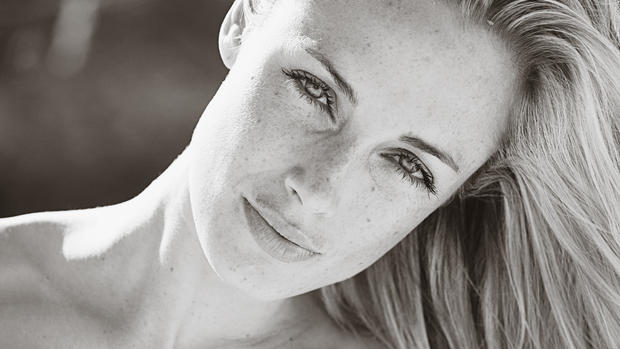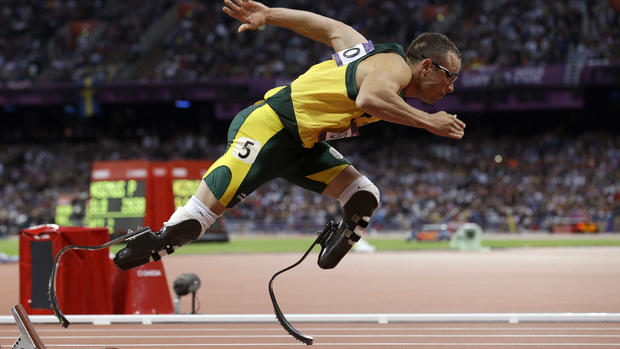Oscar Pistorius became an avid collector of firearms in Olympic year, gun club says
JOHANNESBURG In his Olympic year, Oscar Pistorius steadily became an avid firearms collector, joining a gun-collecting club and purchasing a collection of firearms that included a .500 Magnum pistol dubbed by its manufacturer as "the most powerful production revolver in the world" and a civilian version of a military assault rifle.
At the end of 2012, in the first blush of his romance with Reeva Steenkamp, the model he later shot and killed, Pistorius got deeper into his hobby. It was known that Pistorius liked guns but only now, from Associated Press interviews with other collectors, is it becoming clear the extent to which he became a dedicated firearms aficionado in the 12 months before he shot Steenkamp.
The track star not only applied for licenses to own more guns, but actually bought them, too, according to John Beare, vice chairman of the Lowveld Firearm Collectors Association which accepted Pistorius as a paid-up member last April. He and Pistorius were introduced at a Johannesburg hotel in January 2012, and it was there that Beare first explained to the athlete and some of his friends how to become certified collectors.
Had he not become a collector, Pistorius would under South African law have been limited to a maximum of four firearms for self-defense, of which only two could have been handguns, according to Johannesburg attorney Martin Hood, who specializes in firearms law.
Carvel Webb, chairman of the National Arms and Ammunition Collectors Confederation of South Africa, an umbrella group for the country's 2,000 approved private collectors including Pistorius, said that in the wake of Steenkamp's killing his group will now verify that Pistorius fulfilled the necessary requirements to be accepted as a collector and a decision in January to let him start collecting semi-automatic rifles.
"We will review all of those just to see if we are happy with it," Webb said.
Pistorius made no secret of his passion for firearms. Reporters who visited him at home in Pretoria, the capital, saw the pistol he kept by his bed and was licensed to own. He practiced at firing ranges both in South Africa and in Europe where he trained for the London Games. But apparently less well-known was his involvement with gun collectors to start building a firearms collection.
Beare said he twice observed Pistorius shoot at firing ranges and also at a clay pigeon shoot, but saw nothing to suggest he could be a menace with a gun.
"His safety was good," Beare told the AP. "He wouldn't do anything irrational with a firearm, because then I would have nailed him immediately."
Pistorius says he mistook his girlfriend Steenkamp for a home intruder and shot her while she was in his bathroom toilet, firing through the closed door. Pistorius' license for the 9 mm pistol was issued on Sept. 10, 2010, according to the South African Police Service's National Firearms Center. It was registered for self-defense
Prosecutors have charged Pistorius with premeditated murder for killing Steenkamp with three of four shots fired in the early hours of Feb. 14.
"I had no reason to believe that there was anything wrong, that he could have a dark side, that there could be something wrong," said Beare.
However, Roberto Siriu, president of the Tolmezzo shooting range in northeast Italy, said Pistorius did not seem to him to be well-trained with firearms.
"No, I don't think so. He didn't give me that impression," Siriu told the AP.
Pistorius shot at Tolmezzo during breaks from athletic training in the nearby town of Gemona. In November 2011, Pistorius posted a photo of himself firing a rifle at Tolmezzo, with the words: "Had a 96% headshot over 300m from 50shots! Bam!"
Last June, seven weeks before he made history by running at the London Games, Pistorius tweeted that he was going back to Tolmezzo to shoot vintage rifles, adding: "Amped to the max! Yeaaah boi!!"
Gun collecting is regulated by South Africa's stringent Firearms Control Act. Pistorius had to explain to his collecting association, both in writing and in interviews, what types of firearms he wanted to collect and why.
Beare said he and two other association members interviewed Pistorius in June or July 2012, shortly before he became the first double-amputee Olympic runner.
"He was still budding (as a collector) at that stage. He had done his research on it and he was interested in American firearms," Beare said.
The association certified Pistorius as a beginner collector, Beare said. Pistorius bought two Smith & Wesson revolvers and three shotguns and sent photos of the firearms and their serial numbers to the association, as required, Beare said.
But Pistorius couldn't take actual physical possession of his firearms because he didn't have police-issued licenses for them. So the weapons were kept for safekeeping by a gun dealer, Beare said. At firing ranges, Pistorius used other people's guns, he added.
Pistorius eventually applied for the licenses in January, according to the National Firearms Center. It listed his weapons as:
-A Smith & Wesson model 500. With a caliber of .500 Magnum, it is called "the most powerful production revolver in the world" by its manufacturer in Springfield, Massachusetts. "A hunting handgun for any game animal walking," the company's website says. Pistorius was "quite fascinated" with that particular weapon, Beare said.
-A Smith & Wesson .38-caliber revolver.
-Three shotguns: A Mossberg, a Maverick and a Winchester, all American makes.
-A Vektor .223-caliber rifle.
The current status of those applications is unclear. Firearms Center officials said after Pistorius killed Steenkamp that the six license applications were sent back to a Johannesburg police station to be refilled, but the reason for that wasn't given.
For civilian collectors, the Vektor is the closest they can get to the R-series assault rifles used by South Africa's military. For civilian use, the rifle is modified to make it only semi-automatic. Because it is classed as a restricted weapon in South Africa, Pistorius had to upgrade his status from a beginner to a more serious collector.
As part of that upgrading process, Pistorius was interviewed again by his collectors' club this January, Beare said. It accepted the runner's explanation that he wanted to collect weapons linked to South African military history, Beare said. He said that entitled Pistorius to start collecting not just South African firearms but also Russian-made guns that guerrilla groups have used over the years to fight South African forces.
Pistorius bought the Vektor around December, and sent the serial number and a photo to the association, Beare added.
Collecting firearms can be expensive. Vektors sell for US$1,100 to US$1,500 on South African gun-resale websites. Pistorius' athletic success and sponsorships have made him wealthy. Beare said he understood that Pistorius was planning to build on his collection over time.
"You start small and then you start growing," he said.
Some have questioned why Pistorius felt he needed such a variety of weapons and whether the association should have certified him.
Andre Pretorius, president of the Professional Firearm Trainers Council, a regulatory body for South African firearms instructors, said he struggles to see how pistols, shotguns and a semi-automatic rifle could be regarded as a coherent collection.
"The makes differ, the models differ and generally a collection needs to have a theme," said Pretorius. "I don't see there's a theme here."
But Webb, of the collectors' confederation, disagreed.
"There was a logic," Webb told the AP. "He's got three approved areas of interest."

